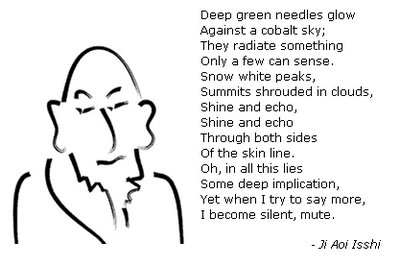If Army 1st Lt. Ehren Watada has some extra hope this morning about ending the Iraq war, Americans can take a little credit. Toward the end of last week, the 28-year-old officer who courageously refused orders to go to Iraq was hoping for good turnouts in anti-war events planned for Saturday in Washington, D.C., and elsewhere.
After four years of quiescence in the face of a wrongly launched war that has gone from "Mission Accomplished" to what a top commander finally confessed is a "dire" situation, Americans ought to demand a change of course. Change requires more public involvement than voting out a few congressional incumbents. National protest organizers hoped for up to 300,000 people to march Saturday.
Watada has had the courage to point out citizens' responsibilities. As he awaits a court-martial beginning Feb. 5 for acting responsibly and refusing to serve in what he regards as an illegal war (he volunteered to go to Afghanistan instead), Watada is allowed to travel up to 250 miles from Fort Lewis. He has been telling groups in Seattle, Tacoma and elsewhere that citizens have the power to end the war.
His honesty isn't surprising, and asking people to take responsibility doesn't at all go beyond what Watada expects of himself. When most of the country was still following President Bush's post-Sept. 11 admonitions to go shopping, Watada decided to enlist in a delayed-entry program while he wrapped up studies at Hawaii Pacific University.
As we went to war, Watada believed the false talk about imminent danger to the United States and weapons of mass destruction. His views changed as he read up on Iraq in preparation, as he put it, to be a better leader of troops under his command. Instead, the growing knowledge led him to become the only commissioned officer known to refuse Iraq duty, acknowledging from the start that he might have to carry the imprisonment that the Rev. Martin Luther King Jr. and other practitioners of civil disobedience felt was their responsibility to accept in calling attention to wrongful government policy. In Watada's case, the prison time could be as much as six years.
Watada talks about a small group that regularly protests in Seattle. But, he asks, "Where are the other 600,000 people in Seattle?"
More than anything, I wanted to know from Watada what he thought others of us should be doing. He starts with where his journey began: learning about our country's actions. Then there is the matter of doing something. Action certainly started with the November elections (although, as Watada points out, the turnout means only a limited number of people sent any message).
Without more pressure on national leaders, it's not safe to assume they will change the country's course. The Iraq Study Group's bipartisan recommendations to start withdrawal planning got tossed. Generals seem willing to complain publicly about missteps, but only after they have their pensions. Unless better in the way of preventing needless deaths of U.S. troops and Iraqis is demanded by the public, members of Congress likely will settle for -- at best -- resolutions of disapproval for the war's escalation. Non-binding resolutions will just draw snarling dismissals from Vice President Dick Cheney. But maybe members of Congress think they can satisfy voters by saying, see, we told the president what a mistake he was making.
Watada said, "No longer can we say, 'Oh, the Democrats will take care of it. Or, the peace activists will take care of it' " and simply go about our lives.
Staffers to politicians have told him that their bosses listen to the public. "But you know what, if it is the same person calling over and over," the call is very easy to dismiss, he said.
He thinks more individuals need to speak up, and organizations -- churches, labor unions, student groups and faculties -- need to lend their voices. And he thinks the public should tell big donors to speak on their behalf and demand the media go beyond their "lazy and inadequate attempt to cover the news."
As someone occasionally shocked by the behavior of fellow Vietnam war protesters, I wondered how a conscientious young soldier of this generation looked at street demonstrations: Will protest lead to the kind of divisions and lack of regard for U.S. troops seen during Vietnam? "That is why knowledge is first and foremost," Watada said. "We need to come together as Americans." We need to understand, he said, that simply being there is inflaming rather than improving Iraq.
Watada is idealistic enough to expect a lot of people to act. He has been disappointed in the amount of attention his case has received in most of the media. But, he said, "I think my stand and my case have raised the level of awareness and thinking about what we are doing in Iraq and what our soldiers are being forced to do."
Beyond knowledge, though, is action, whether it is writing a letter, making a call or getting out of our chairs to make our views known.








